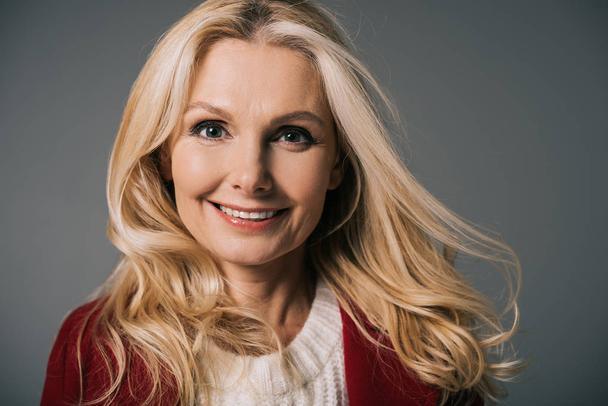The transition into menopause can be one full of surprises and changes. Your hormonal levels change, and your body experiences different physical and emotional manifestations, as explained at length here. Some of these changes can lead to an array of fears and emotions as you accustom yourself to a new lifestyle and routine.
While there can be many benefits to perimenopause and the menopausal period, there's no hiding from people's dreadful associations with some of its symptoms. Below, we will focus on one of the more alarming symptoms of menopause, hair loss. Studies show slightly more than half of all women experience some degree of menopause-related hair thinning or loss. By definition, the menopause age average is 51, with the case of menopause starting 12 months after a woman sees her last period.
What Are The Causes Of Hair Loss?
Before we dive into the different causes of alopecia, the hair loss medical term, let's first briefly explain the process of hair growth.
Each follicle's life cycle is divided into three phases:
- Anagen - active hair growth that generally lasts between two to eight years. 90% of one's hair is within this state.
- Catagen - transitional hair growth that lasts two to three weeks; hairs diminish in size drastically and are ready to be cut.
- Telogen is the resting phase that lasts about two to three months, and up to 100 hairs can fall out daily. At the end of the resting phase, the hair is shed, new hair replaces it, and the growing cycle starts again.
But when a person's hair falls out or begins to thin faster than its growth, "hair loss" begins.

Can Menopause Cause Hair Loss?
Yes, menopause is a significant factor in hair loss in many women. During perimenopause, estrogen and progesterone levels begin to decline. These hormones play a role in promoting hair growth, density, and fullness. When they drop, it leads to thinning hair that doesn't grow as quickly as before.
Unlike men, when hair loss leads to a receding hairline, symptoms of menopause hair loss symptoms cause a widening part. "Usually in female pattern hair loss, the frontal hairline stays about the same, but there can be a widening of the part and a central thinning of the hair," says Alison Bruce, MBChB, a dermatologist at Mayo Clinic.
Can Menopausal Hair Loss Be Reversed?
Unfortunately, hair loss resulting from body changes cannot be reversed but can be treated. "Menopause physically changes the structure of your hair follicles," writes Kristin Hall, FNP. "Once a hair follicle is miniaturized, it’s less capable of producing the thick, pigmented 'terminal' hairs that account for the vast majority of hairs on your scalp."
There are many women hair loss treatments, from medications to transplants, as detailed here. However, one often unspoken treatment is the natural use of essential oils. Customers rate Dr. Hempster's Anti Hair Loss Shampoo as the best shampoo for hair loss. Massaging the scalp with hemp seed oil soothes the dryness of the scalp by absorbing nutrients and promoting hair growth. Its potent anti-inflammatory properties aid in soothing inflammation on the scalp. Explore the collection on Shop Home Med today!










